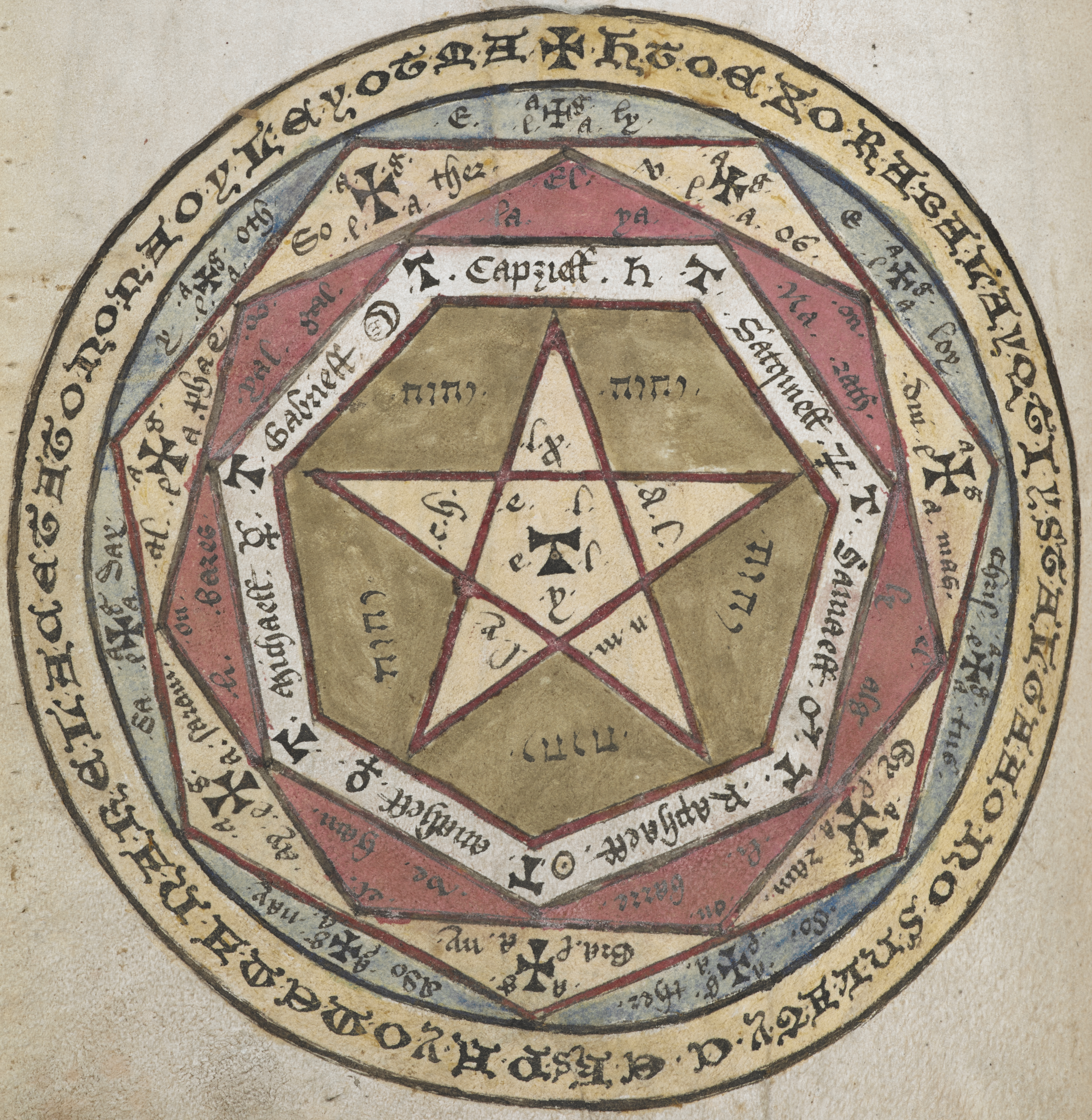The new and improved defender of RPGs!
Sunday, 8 January 2017
Finding the Balance Between Detail and Practicality in "Authentic" RPG Magic
So I've had a serious bit of writer's block this past week. Obviously not with my Everyjoe articles, but with the writing of my new Appendix P rule-set project, where I intend to make an OSR set of rules but that focuses on a more "medieval authentic" style of play. It will obviously be perfect for Dark Albion, but also for just about any D&D game where you want something that doesn't feel like you're in a 'medieval times' version of Seattle or Portland (or Toronto). It'll obviously re-use quite a bit of the material from Dark Albion, including the actual medieval justice system and price lists, and a lot of the stuff on social class and character generation. It'll expand the very basic material in Dark Albion's Appendix P into a full-blown game manual, with more material for working it as a complete set on its on.
And most importantly, while it'll have minor changes to the character creation and some other optional rules or what have you, the biggest change will be that it'll scrap the Vancian spell system for a totally new set of magic techniques that are based on real concepts from medieval grimoires.
Now, what's been blocking me up, and that I just can't seem to feel totally satisfied by, is how to balance out the ratio between "enough detail" and "too much detail".
Obviously, AD&D has almost no detail in it's magic. Virtually none of the D&D or OSR books do. It's the name and spell effects, maybe a material component which you must have but that usually doesn't have any description of how it's used. No description of what it actually looks like to cast a spell, other than saying you speak some words (whatever those might be, it doesn't say), make some gestures (again, no idea which) and might use an ingredient (how, we don't know, other than that they're consumed in the casting).
I definitely want more than that. I want to give you an idea of what it looks like when you're doing magick. For some forms perhaps more than other. For Alchemy, I think it would probably be enough to explain that a lab is needed, and the other things you must do in it, the ingredients that might be used to some extent, etc.
But I'm not totally sure. I don't want a situation where there's an unnecessary level of detail. And after all, this is an RPG, not a practical guide to performing medieval magick (there are some good books out there for that, if that's what you want). Nor do I want something where the magister character gets vastly more undue attention than the other classes (or for that matter, all the magic-using classes get more undue attention than the non-casters just because of their various 'special needs').
So, I want some input from my readers, especially those who would be interested in this product. Would you want to have a LOT of flavor-detail in your magic systems, only enough that it made each type of magical activity distinct, or do you largely not care about the detail and are more interested in the mechanics, and would only want anything that would directly relate to mechanical elements of the game?
Let me know.
RPGPundit
Currently Smoking: Lorenzetti Volcano + H&H's Chestnut
Subscribe to:
Post Comments (Atom)


I always enjoy fiddly, complicated magic systems, like Ken Hite's masterpiece GURPS Cabal. Complex magic rules tell the players that this is Important.
ReplyDeleteGURPS Cabal as well, and also the system which inspired it, Fantasy Wargaming by Bruce Galloway, et al. (I understand that Galloway himself wrote the actual magic/religion unified system of that game).
DeleteBegin that last response with "I liked…"
DeleteExplain what it really looks like, but keep it simple. For instance, if someone were to watch another person perform a ritual from the True Grimoire, it would look like babbling religious nonsense followed by an apparition. It would involve wizards doing things at odd times based on a "secret" calendar and requiring things for unknown purposes with specific qualities.
ReplyDeleteI would try to explain it like I would to a child who lived in a world where this kind of magick was real in a non-occulted sense.
That is the way of doing it I'm kind of inclined to do, yes.
DeleteDefinitely not the last option, probably "only enough", possibly a lot but that covers a lot of ground, probably not A LOT-a lot. If that makes any sense.
ReplyDeleteI would like to see a magical system that we medium well leaning towards well done in detail. Details would be cool, it would help GMs describe the magic.
ReplyDeleteI also don't have a problem will less MU and clerics being around.
The AD&D books did not give enough detail for my tastes - I really enjoyed reading The Dying Earth and getting a vivid picture of the way magic-users went about preparing and using spells.
ReplyDeleteThe Dying Earth was great indeed. I also liked the flavor of "Fantasy Wargaming" a lot. In game terms it was too complicated, but it did feel very much like performing "real" medieval magic. Here's a link to my old review of that game: http://darkdungeon2.blogspot.nl/2010/11/classic-review-8-fantasy-wargaming.html (though having the real thing would be more helpful I guess)
ReplyDeleteI think the big problem "Fantasy Wargaming" had was that it had very complex mechanics. Whatever I end up doing, it's mechanics will be very simple and in line with OSR style.
DeleteI personally don't care about the system, having developed my own, but I am a sucker for flavor-detail. As especially in magic not much is around I am writing it currently myself but for sure are interested what others have to write about it.
ReplyDelete